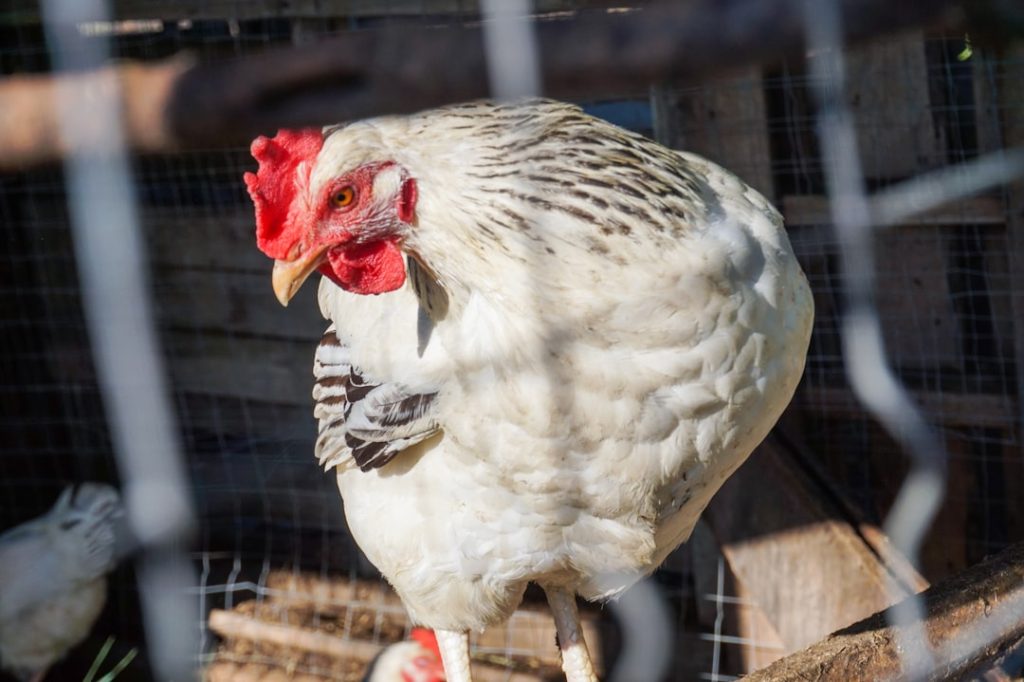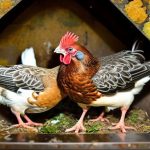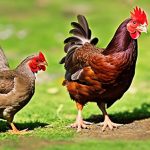When selecting a breed for livestock farming, several factors must be considered. The primary consideration is the purpose of the farming operation, whether it’s for meat, milk, wool, or as working animals. Each breed has distinct characteristics that make it more suitable for specific purposes.
For instance, Merino and Rambouillet sheep are renowned for their high-quality wool production, while Angus and Hereford cattle are prized for their beef quality and feed conversion efficiency. Climate and environmental conditions play a crucial role in breed selection. Some breeds are better adapted to hot, arid climates, while others thrive in cooler, temperate regions.
Choosing a breed well-suited to the specific geographic location is essential for ensuring animal health and welfare. Other important factors to consider include the breed’s size, temperament, and specific management requirements. These aspects can significantly impact the overall success of the farming operation.
By carefully evaluating these factors, farmers can select a breed that aligns with their goals and is well-adapted to the local conditions, ultimately leading to a more successful and sustainable livestock farming venture.
Table of Contents
- 1 Setting Up the Proper Housing
- 2 Feeding and Nutrition
- 3 Health and Disease Management
- 4 Breeding and Reproduction
- 5 Marketing and Selling
- 6 Record Keeping and Financial Management
- 7 FAQs
- 7.1 What are the benefits of keeping village chickens for business?
- 7.2 What are the key considerations for starting a village chicken business?
- 7.3 What are the common challenges in keeping village chickens for business?
- 7.4 How can one improve the productivity of village chickens for business?
- 7.5 What are the potential markets for village chickens and their products?
Key Takeaways
- When choosing a breed, consider factors such as climate, purpose (meat, eggs, pets), and available resources for care and maintenance.
- Proper housing for your animals should include adequate space, protection from predators, and appropriate ventilation and lighting.
- Ensure your animals receive a balanced diet with the right nutrients for their breed and purpose, and access to clean water at all times.
- Regularly monitor the health of your animals, vaccinate as needed, and have a plan in place for disease prevention and treatment.
- If breeding is part of your plan, educate yourself on the breeding process, genetics, and proper care for pregnant and nursing animals.
Setting Up the Proper Housing
Protection from the Elements
First and foremost, you’ll need to ensure that the housing provides adequate protection from the elements, including shelter from wind, rain, and extreme temperatures. This may involve building a barn or constructing sturdy shelters for your animals to seek refuge in when needed.
Space and Comfort
Additionally, you’ll need to consider the space requirements for your animals, ensuring that they have enough room to move around comfortably and engage in natural behaviors.
Cleanliness, Hygiene, and Specialized Needs
In addition to protection from the elements and adequate space, it’s important to consider the cleanliness and hygiene of the housing facilities. Proper ventilation and drainage are essential for maintaining a healthy environment for your animals, as poor air quality and standing water can lead to respiratory issues and disease. You’ll also need to provide appropriate bedding materials and regular cleaning and maintenance to ensure a clean and sanitary living space for your livestock. Finally, it’s important to consider any specific needs of the breed you’ve chosen when setting up housing, such as access to pasture or grazing areas, or specialized facilities for breeding or milking.
Feeding and Nutrition
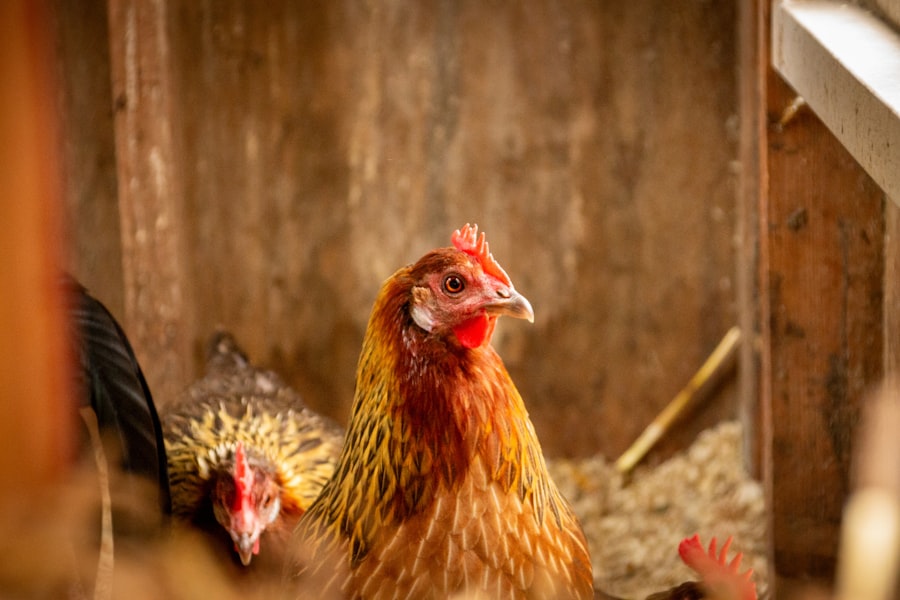
Feeding and nutrition are critical aspects of livestock farming, as they directly impact the health, growth, and productivity of your animals. When it comes to feeding your livestock, it’s important to provide a balanced diet that meets their specific nutritional needs. This may involve a combination of pasture grazing, hay or silage, grains, and supplemental feed depending on the type of livestock you’re raising.
It’s important to work with a veterinarian or animal nutritionist to develop a feeding program that meets the specific requirements of your animals and ensures they receive all the essential nutrients they need to thrive. In addition to providing a balanced diet, it’s important to consider the feeding management of your livestock. This includes establishing regular feeding schedules and ensuring that all animals have access to feed and water at all times.
It’s also important to monitor the body condition of your animals and adjust their feeding program as needed to maintain optimal health and growth. Additionally, you’ll need to consider any specific dietary requirements of the breed you’ve chosen, as well as any seasonal variations in feeding practices. By prioritizing feeding and nutrition management on your farm, you can help ensure the health and productivity of your livestock.
Health and Disease Management
Maintaining the health of your livestock is essential for a successful farming operation. When it comes to health and disease management, there are several key practices to keep in mind. First and foremost, it’s important to establish a relationship with a veterinarian who can provide guidance on preventative care, vaccinations, and treatment options for common illnesses.
Regular health checks and vaccinations are essential for preventing the spread of disease and ensuring the overall well-being of your animals. In addition to preventative care, it’s important to establish good biosecurity practices on your farm to minimize the risk of disease transmission. This may involve implementing measures such as quarantine protocols for new animals, controlling access to your farm by visitors or vehicles, and maintaining strict hygiene practices when handling animals or equipment.
It’s also important to monitor the health of your animals regularly and be vigilant for any signs of illness or distress. Early detection and prompt treatment of any health issues can help prevent the spread of disease and minimize the impact on your livestock. Finally, it’s important to consider the specific health needs of the breed you’ve chosen when developing a health management plan.
Some breeds may be more susceptible to certain illnesses or conditions, so it’s important to be aware of any breed-specific health concerns and take appropriate measures to prevent them. By prioritizing health and disease management on your farm, you can help ensure the long-term success of your livestock farming venture.
Breeding and Reproduction
Breeding and reproduction are fundamental aspects of livestock farming, as they directly impact the growth and sustainability of your herd or flock. When it comes to breeding your livestock, it’s important to consider several key factors. First and foremost, you’ll need to establish a breeding program that aligns with your farming goals.
This may involve selecting breeding stock with desirable traits such as high milk production, fast growth rates, or strong maternal instincts. By carefully selecting breeding stock that aligns with your goals, you can work towards improving the overall quality and productivity of your herd or flock. In addition to selecting breeding stock, it’s important to consider the reproductive management of your animals.
This may involve implementing breeding schedules, monitoring reproductive performance, and providing appropriate care during gestation and parturition. It’s also important to be familiar with the reproductive cycles of the breed you’ve chosen and take appropriate measures to maximize breeding success. This may involve techniques such as artificial insemination or embryo transfer, depending on the specific needs of your breeding program.
Finally, it’s important to consider the genetic diversity of your breeding stock in order to maintain a healthy and sustainable herd or flock. Inbreeding can lead to genetic defects and reduced fertility over time, so it’s important to carefully manage breeding practices in order to maintain genetic diversity within your herd or flock. By prioritizing breeding and reproduction management on your farm, you can work towards building a strong and sustainable breeding program that supports the long-term success of your livestock farming venture.
Marketing and Selling
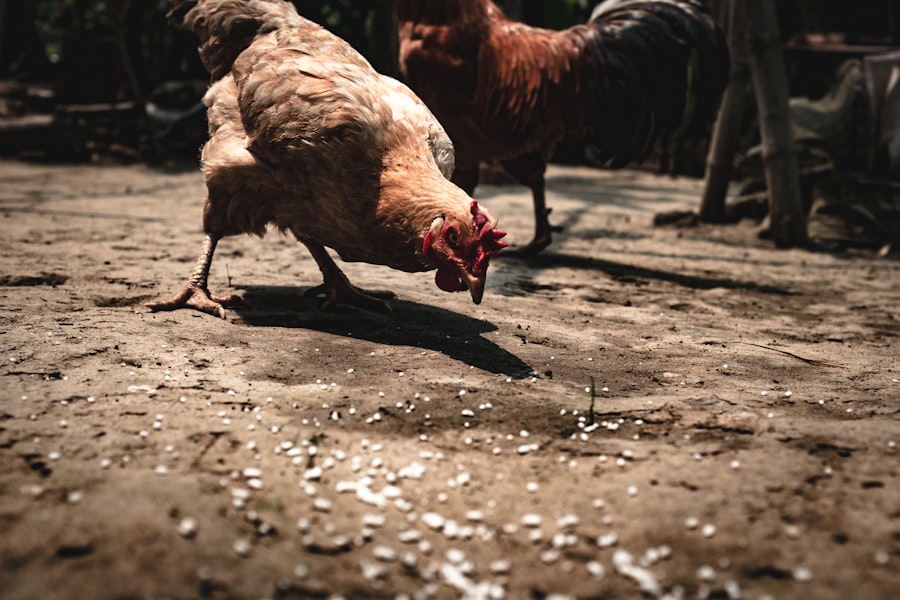
Understanding Your Target Market
When it comes to marketing your livestock products, it’s essential to identify your target market and develop a marketing strategy that aligns with their needs and preferences. This may involve conducting market research to understand consumer demand for specific types of meat, dairy products, or other livestock products in your area.
Developing a Strong Brand Identity
In addition to understanding consumer demand, it’s crucial to consider branding and packaging options for your products. Developing a strong brand identity and attractive packaging can help differentiate your products in the marketplace and attract customers.
Effective Distribution and Sales Strategies
It’s also important to consider distribution channels for your products, whether that involves selling directly to consumers through farmers’ markets or establishing relationships with local retailers or restaurants. When it comes to selling your livestock products, it’s essential to establish fair pricing strategies that reflect the value of your products while remaining competitive in the marketplace. Prioritizing customer service and building strong relationships with buyers can foster repeat business and positive word-of-mouth referrals.
Record Keeping and Financial Management
Record keeping and financial management are essential aspects of running a successful livestock farming operation. When it comes to record keeping, it’s important to maintain accurate records of all aspects of your farming activities, including breeding records, health records, feeding schedules, production data, and financial transactions. This information can provide valuable insights into the performance of your herd or flock and help inform decision-making on your farm.
In addition to record keeping, it’s important to prioritize financial management in order to ensure the long-term sustainability of your farming operation. This may involve developing a budget that outlines all expenses related to feed, housing, veterinary care, equipment, labor, and other operational costs. It’s also important to establish pricing strategies for your products that reflect their true value while remaining competitive in the marketplace.
Finally, it’s important to regularly review financial performance data in order to identify areas for improvement and make informed decisions about future investments or changes in management practices. By prioritizing record keeping and financial management on your farm, you can work towards building a strong foundation for long-term success in livestock farming. In conclusion, choosing the right breed is crucial for success in livestock farming; setting up proper housing is essential for animal welfare; feeding and nutrition are critical for animal health; health management is key for disease prevention; breeding and reproduction are fundamental for herd sustainability; marketing and selling are crucial for profitability; record keeping and financial management are essential for long-term success in livestock farming operations.
By carefully considering each of these aspects and implementing best practices on your farm, you can work towards building a strong foundation for success in livestock farming.
If you’re looking to start a business with village chickens, it’s important to have a well-equipped chicken coop. One crucial aspect of a coop is providing the right heating system to keep the chickens warm and comfortable. This article on heater for a chicken coop provides valuable information on the different types of heaters available and how to choose the best one for your coop. Additionally, you can also find helpful tips on the best type of coop and interior ideas for your village chicken business in the related articles on Poultry Wizard.
FAQs
What are the benefits of keeping village chickens for business?
Keeping village chickens for business can provide a source of income, food security, and employment opportunities for rural communities. Additionally, village chickens are well adapted to local environments and require minimal inputs, making them a sustainable and cost-effective business venture.
What are the key considerations for starting a village chicken business?
Key considerations for starting a village chicken business include selecting the right breed, providing proper housing and nutrition, implementing biosecurity measures to prevent disease, and establishing a market for the chickens and their products.
What are the common challenges in keeping village chickens for business?
Common challenges in keeping village chickens for business include disease outbreaks, predation, limited access to veterinary services, and fluctuating market prices. Additionally, inadequate knowledge and skills in poultry management can also pose challenges for small-scale farmers.
How can one improve the productivity of village chickens for business?
Productivity of village chickens for business can be improved through proper nutrition, vaccination against common diseases, selective breeding for desirable traits, and providing a clean and comfortable living environment. Additionally, regular monitoring and management practices can also contribute to improved productivity.
What are the potential markets for village chickens and their products?
Potential markets for village chickens and their products include local communities, urban markets, restaurants, and hotels. Additionally, there is a growing demand for organic and free-range chicken products, which can present opportunities for small-scale farmers to access niche markets and premium prices.
Meet Walter, the feathered-friend fanatic of Florida! Nestled in the sunshine state, Walter struts through life with his feathered companions, clucking his way to happiness. With a coop that’s fancier than a five-star hotel, he’s the Don Juan of the chicken world. When he’s not teaching his hens to do the cha-cha, you’ll find him in a heated debate with his prized rooster, Sir Clucks-a-Lot. Walter’s poultry passion is no yolk; he’s the sunny-side-up guy you never knew you needed in your flock of friends!

